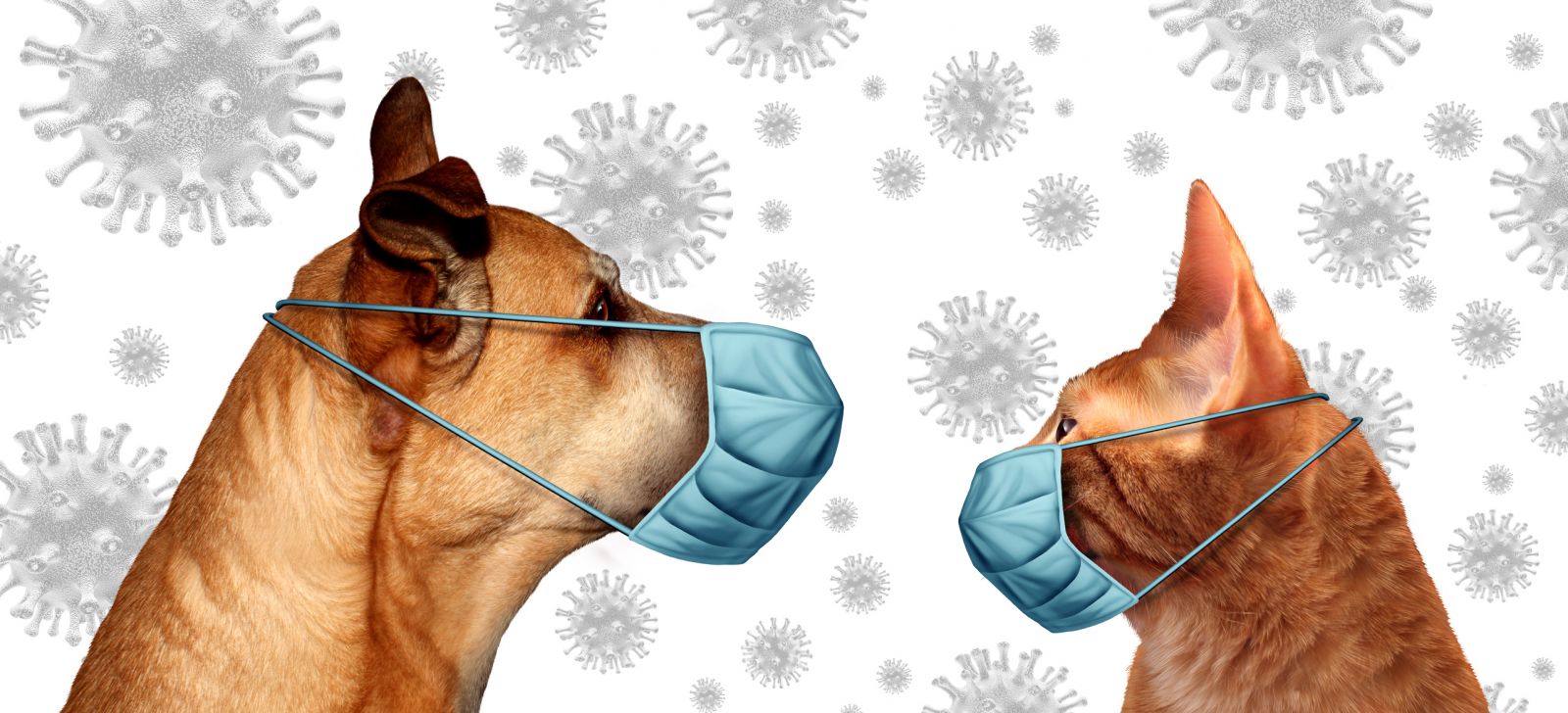Preliminary results from OVC research suggest a substantial proportion of pets in households of persons with COVID-19 become infected.

Research from the University of Guelph’s Ontario Veterinary College (OVC) shows SARS-CoV-2, the virus that causes COVID-19 in humans, can also infect dogs and cats. Veterinary pathologist Dr. Dorothee Bienzle and veterinary internist and infectious disease specialist Dr. Scott Weese, both from OVC’s Department of Pathobiology, are leading the work. The study is one of the first of its kind to examine what risk COVID-19 in humans poses to pets, and why some animals become infected while others do not.
In April 2020, the researchers began seeking volunteer participants with cats, dogs or ferrets from households where at least one member had symptoms consistent with COVID-19 or had a positive test result. After confirming eligibility to participate, Bienzle and Weese conducted household visits to collect nasal, throat and rectal swab samples from the pets, as well as a swab of the fur where the pets are most likely to be touched or handled.
Of approximately 60 animals tested to date, samples from four cats and one dog yielded positive PCR results, samples from one cat and two ferrets yielded inconclusive results, and the remainder tested negative. The team also tested blood samples from approximately 90 pets for antibodies against SARS-CoV-2. Presence of antibodies indicate previous exposure and/or infection. Antibodies were present in about 50 per cent of cat and 30 per cent of dog samples. For some animals, transient respiratory or generalized illness was reported by owners.
“These preliminary results suggest that a substantial proportion of pets in households of persons with COVID-19 become at least briefly infected,” says Bienzle. “Due to the narrow window of time available to detect a current infection in pets, especially if their owner is still sick and isolating, blood testing the animal at a later time to check for previous infection is preferable for assessment of human-to-animal transmission,” she says in a news release for the European Society of Clinical Microbiology and Infectious Disease (ESCMID) Conference, where the teams’ early findings were unveiled in September 2020.
Bienzle and Weese stress that COVID-19 is predominantly a human disease. Their study continues to investigate what factors contribute to pets becoming infected and which types of households are at highest risk of having COVID-19 infection spread to companion animals.
“We still have a lot to learn about the virus and the interaction between humans and pets. This study is helping us lay the groundwork for future research to have an idea of how often human-to-pet transmission occurs,” Weese says. “As is typical with zoonotic diseases, we’re trying to walk the fine line between raising awareness and preventing people from overreacting,” says Weese. “I encourage pet owners to exercise common sense: if people in your home are isolating, your pets should do the same.”
What Pet Owners Should Know About the Pandemic and Your Pet
From Dr. Scott Weese
Disease Transmission
Transmission of SARS-CoV-2, the virus that causes the coronavirus disease (or COVID-19), to pets probably isn’t uncommon. That’s not big news. We know cats, in particular, are susceptible to infection. With limited surveillance, a reasonable number of infected pets have been identified. We've been saying for a while that transmission to pets was likely occurring under the radar, but it’s not likely a big deal – it’s something to watch and figure out over time, but not to freak out about.
Infected Pets?
Pets in households with human COVID-19 cases are unlikely to be shedding the virus at any given time. While they can be infected, the window that they’ll shed the virus is likely pretty short. That’s why we have a hard time finding positive animals through PCR testing (looking for the virus) versus antibodies (looking for evidence of previous infection).
Don’t Panic
Relax. The messages are the same: treat pets like other members of the family when it comes to control measures for this virus. If the people in the household are isolating, the pets should too. If someone is staying away from people because they might have COVID-19, they should stay away from animals too.
We Are Still Learning
The health impact of SARS-CoV-2 infection in pets is still unclear. We suspect cats are somewhat similar to people (with fewer infections). Most don’t get sick. Most that get sick get mild flu-like disease. A small percentage may get more seriously ill.
Drs. Bienzlee and Weese are OVC Pet Trust-funded researchers. Visit Weese’s blog, to stay up to date on all things COVID-19 and pets.
Read more in spring / summer issue of Best Friends Magazine.

